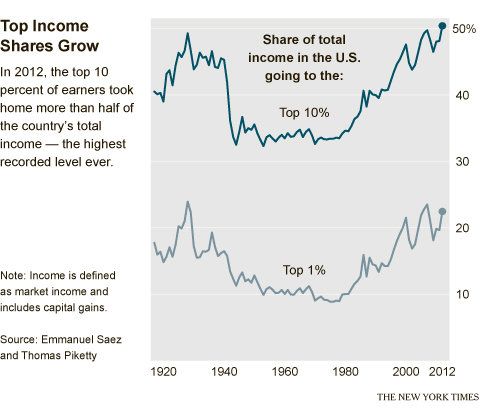@mperkel #ASKSNOWDEN They say it’s a balance of privacy and safety. I think spying makes us less safe. do you agree?
Intelligence agencies do have a role to play, and the people at the working level at the NSA, CIA, or any other member of the IC are not out to get you. They’re good people trying to do the right thing, and I can tell you from personal experience that they were worried about the same things I was.
The people you need to watch out for are the unaccountable senior officials authorizing these unconstitutional programs, and unreliable mechanisms like the secret FISA court, a rubber-stamp authority that approves 99.97% of government requests (which denied only 11 requests out of 33,900 in 33 years http://www.motherjones.com/mojo/2013/06/fisa-court-nsa-spying-opinion-reject-request. They’re the ones that get us into trouble with the Constitution by letting us go too far.
And even the President now agrees our surveillance programs are going too far, gathering massive amounts of private records on ordinary Americans who have never been suspected of any crime. This violates our constitutional protection against unlawful searches and seizure. Collecting phone and email records for every American is a waste of money, time and human resources that could be better spent pursuing those the government has reason to suspect are a serious threat.
I’m going to stop here. My deepest thanks to everyone who sent questions, and whether or not we agree on where the lines should be drawn, I encourage you to contact your members of congress and tell them how you feel about mass surveillance. This is a global problem, and the first step to tackling it is by working together to fix it at home.
If you’d like to more ideas on how to push back against unconstitutional surveillance, consider taking a look at the organizations working together to organize https://thedaywefightback.org/. [..]
@LukasReuter #AskSnowden How should the community of states react to the new information concerning surveillance? What actions have to be made?
We need to work together to agree on a reasonable international norm for the limitations on spying. Nobody should be hacking critical-to-life infrastructure like hospitals and power stations, and it’s fair to say that can be recognized in international law.
Additionally, we need to recognize that national laws are not going to solve the problem of indiscriminate surveillance. A prohibition in Burundi isn’t going to stop the spies in Greenland. We need a global forum, and global funding, committed to the development of security standards that enforce our right to privacy not through law, but through science and technology. The easiest way to ensure a country’s communications are secure is to secure them world-wide, and that means better standards, better crypto, and better research. [..]
@RagBagUSA #AskSnowden what (in your opinion) is the appropriate extent of US national security apparatus? Surely some spying is needed?
Not all spying is bad. The biggest problem we face right now is the new technique of indiscriminate mass surveillance, where governments are seizing billions and billions and billions of innocents’ communication every single day. This is done not because it’s necessary – after all, these programs are unprecedented in US history, and were begun in response to a threat that kills fewer Americans every year than bathtub falls and police officers – but because new technologies make it easy and cheap.
I think a person should be able to dial a number, make a purchase, send an SMS, write an email, or visit a website without having to think about what it’s going to look like on their permanent record. Particularly when we now have courts, reports from the federal government, and even statements from Congress making it clear these programs haven’t made us any more safe, we need to push back.
This is a global problem, and America needs to take the lead in fixing it. If our government decides our Constitution’s 4th Amendment prohibition against unreasonable seizures no longer applies simply because that’s a more efficient means of snooping, we’re setting a precedent that immunizes the government of every two-bit dictator to perform the same kind of indiscriminate, dragnet surveillance of entire populations that the NSA is doing.
It’s not good for our country, it’s not good for the world, and I wasn’t going to stand by and watch it happen, no matter how much it cost me. The NSA and the rest of the US Intelligence Community is exceptionally well positioned to meet our intelligence requirements through targeted surveillance – the same way we’ve always done it – without resorting to the mass surveillance of entire populations.
When we’re sophisticated enough to be able to break into any device in the world we want to (up to and including Angela Merkel’s phone, if reports are to be believed), there’s no excuse to be wasting our time collecting the call records of grandmothers in Missouri. [..]
@savagejen Do you think it is possible for our democracy to recover from the damage NSA spying has done to our liberties? #AskSnowden
Yes. What makes our country strong is our system of values, not a snapshot of the structure of our agencies or the framework of our laws. We can correct the laws, restrain the overreach of agencies, and hold the senior officials responsible for abusive programs to account.
The lawmaker, Aleksei K. Pushkov, chairman of the foreign affairs committee in Russia’s lower house of Parliament, hinted during a panel discussion that the extension of temporary refugee status for Mr. Snowden, the former National Security Agency contractor, might be indefinite.
“He will not be sent out of Russia,” Mr. Pushkov said. “It will be up to Snowden.”
He added that Mr. Snowden’s father believes his son could not get a fair trial in the United States.
Mr. Pushkov made his comments came against a backdrop of broad criticism of the American spying programs that have come to light since the summer. He pointed to the sheer volume of information that American authorities are able to gather.
“The U.S. has created a Big Brother system,” Mr. Pushkov said.


 On this day in 1905,
On this day in 1905, 


 Welcome to the
Welcome to the 